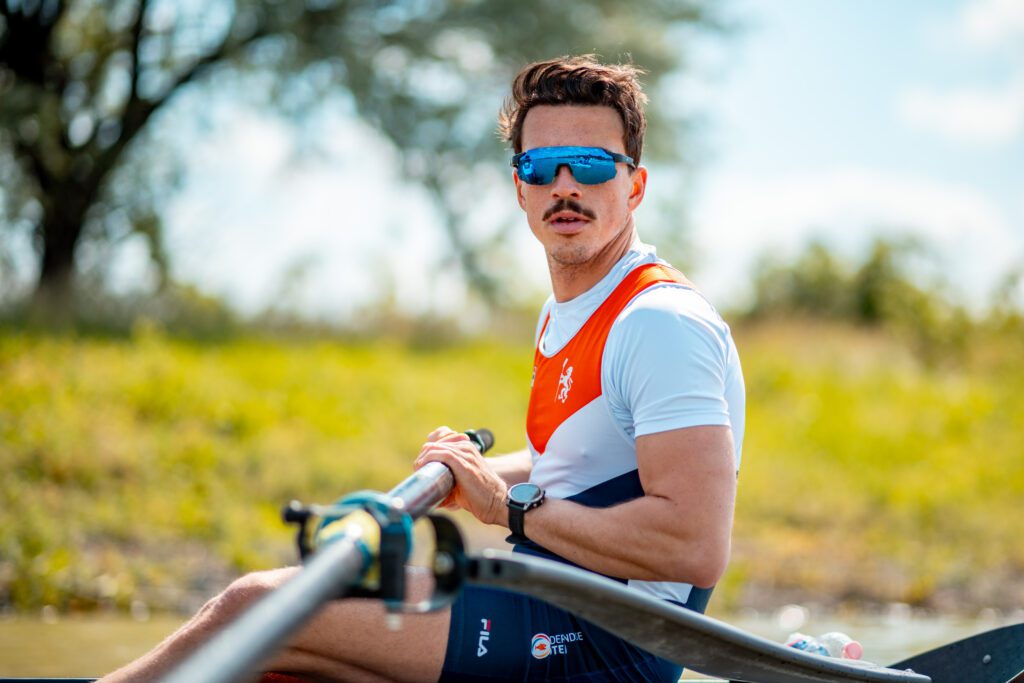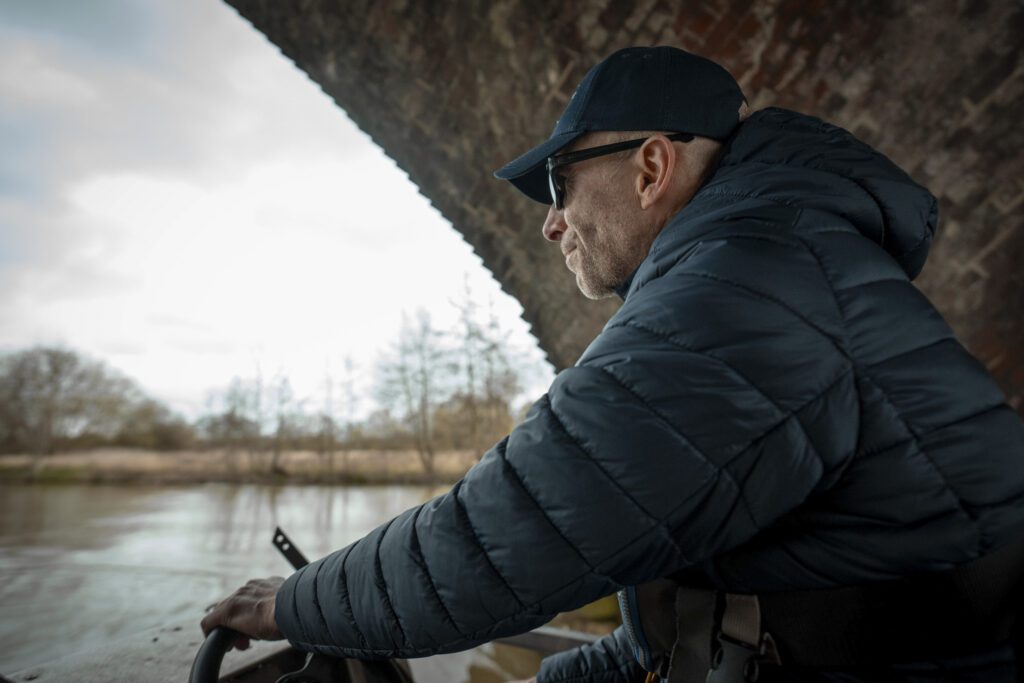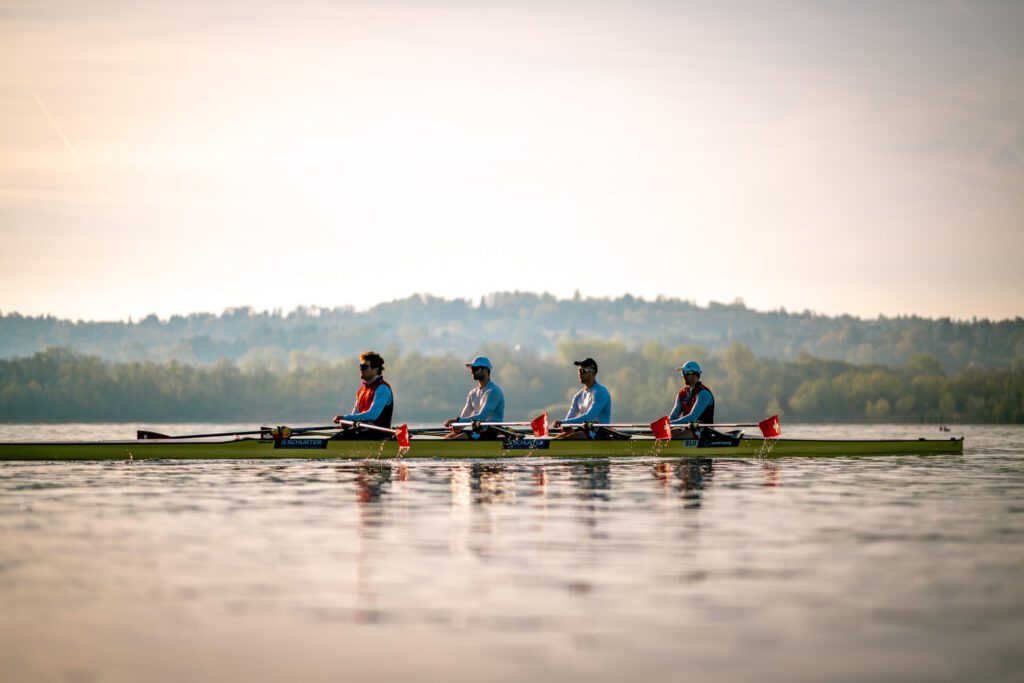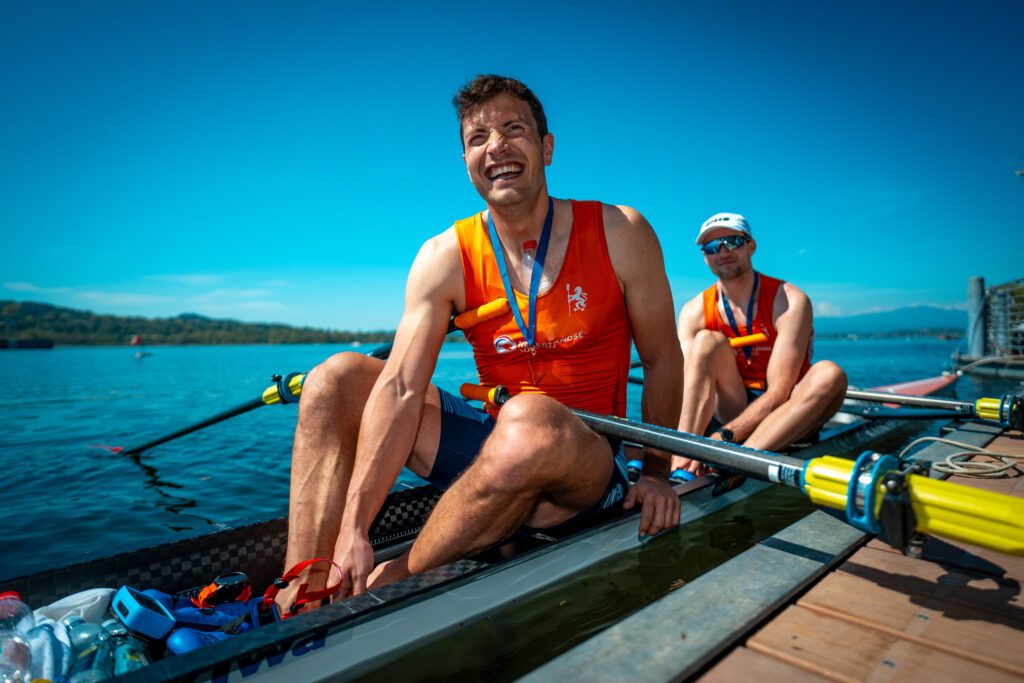Day two of finals dawned scorchingly hot with a breeze which caused trouble for the Fairness Commission. By the end we had Tokyo qualification done for all bar the eights, and a rash of extraordinary racing: I can scarcely process what I’ve seen.
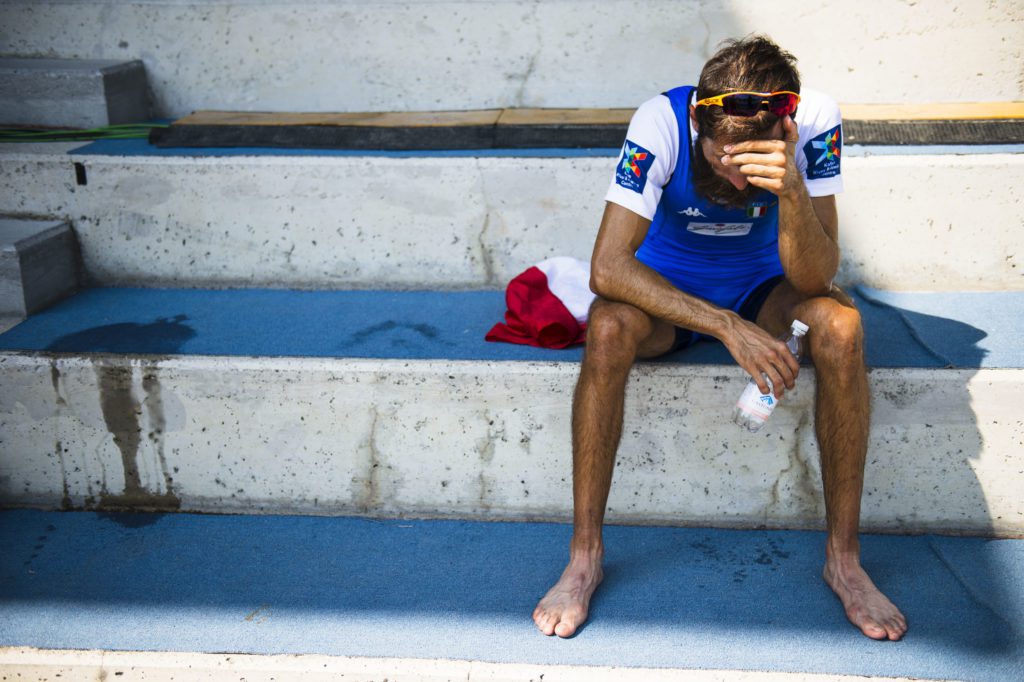
Photo Pietro Ruta ITA LM2x // World Championships, Linz Ottensheim, Austria. Saturday 31 August 2019
“As good as an LM4- final” said one person on social media after the form book and race expectations were wholly overset in the M4- medal race. They were right: it was close, unpredictable and had medals decided on a photofinish: what more could you want. The recent development of new racing styles (particularly high rate) has coincided with a golden era in in rowing where there are so many good crews capable of getting the top medals that nobody can be certain of victory.
The one crew which breaks that mould is, unapologetically, the British PR3 mixed coxed four. They claimed their eleventh consecutive title, the longest current and active victory streak in world class rowing, with a crew who say they ‘race the ghost’ routinely, and plan to go ten seconds faster than their newly-set world best time before the 2020 Paralympic Games come around. The USA is chasing them, but this year it was a 12-second gap, with Italy eight seconds behind the Americans after Russia faded quickly into the lower places.
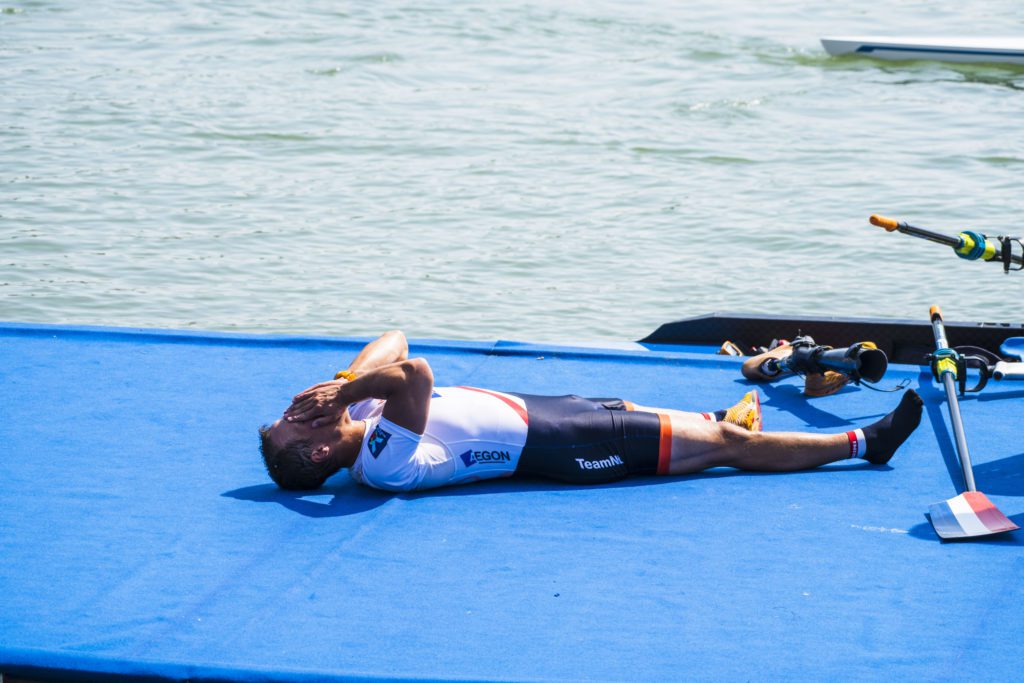
Photo PR2 para-doubles; The Dutch fought like fury but could not quite match the speed, and had to settle for the second step of the podium this year. // World Championships, Linz Ottensheim, Austria. Saturday 31 August 2019
Credit Benedict Tufnell
The PR2 para-doubles was very different, and showed what happens when an already champion-class crew suddenly finds themselves with opposition just as good. Or better, as Britons Lauren Rowles and Laurence Whiteley demonstrated by finding a gear to burn through double world champions Annika van der Meer and Corne de Koning as inexorably as a knife through butter. The Dutch fought like fury but could not quite match the speed, and had to settle for the second step of the podium this year. However, as motivation for the Paralympics goes it’s unbeatable, and if both doubles remain well for the next 12 months they will push each other ever onward.
That M4- A-final was compelling, from favourites Australia having a shockingly bad start and languishing unexpectedly in the bottom two the whole way through the race, to a 0.3 second photofinish between Romania and Britain for silver. It had looked as if Italy would be the ones to take on leaders Poland, but as the race tightened up from clear water to overlap on the Poles during the second half, Britain’s effort to get rid of Italy took its toll on them as the Romanians began to charge. At one stage three of the Romanian crew were glancing to their right, and the intense charge they mounted took them past the British bow with three strokes to go. A superb run from start to finish for Poland for their first ever openweight sweep champs gold but I’m sure we will see the Australians — who had to reshuffle their men’s sweep team due to injury at the last minute two weeks ago — back again next year.
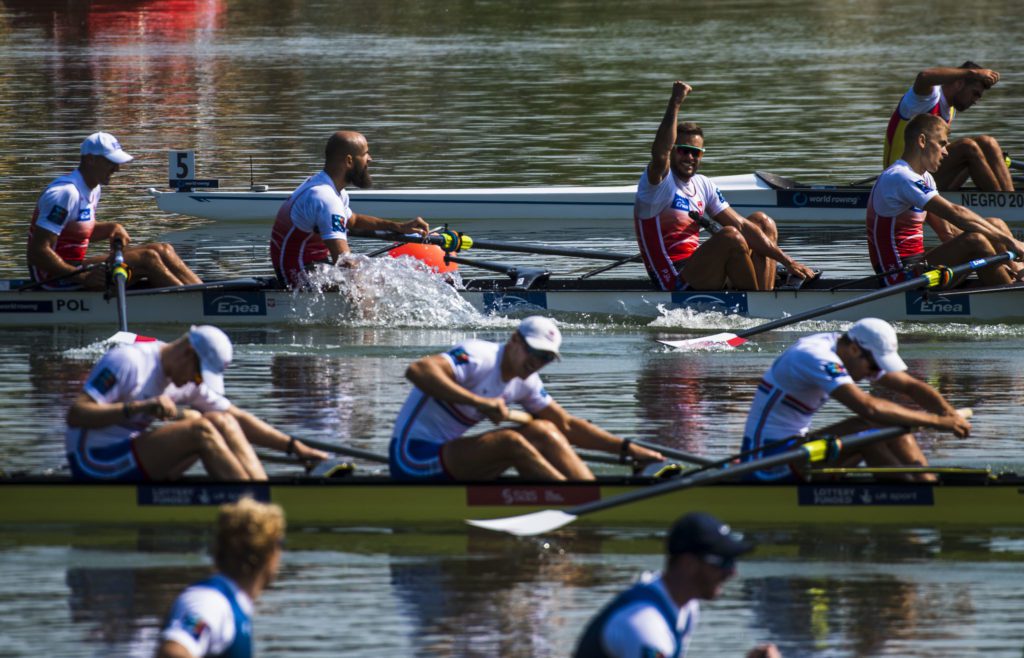
Photo POL M4- // World Championships, Linz Ottensheim, Austria. Saturday 31 August 2019
Credit Benedict Tufnell
The world was set right in the next race, with Australians winning fours gold with glee, although one of them later left her medal on one of the bars at the course, where it was found and returned to her. Although the Aussies led the whole way the Dutch women did not make life easy for them, harrying the leaders non-stop while Denmark eventually broke clear of the rest of the field for an ecstatic bronze. The women’s quads were similarly straightforward for gold medallists China, who levelled with defending champions Poland to the first timing marker but then pulled out a signfiicant lead which could not be dented by minor medallists Poland and the Netherlands even though the margins closed a little at the end.
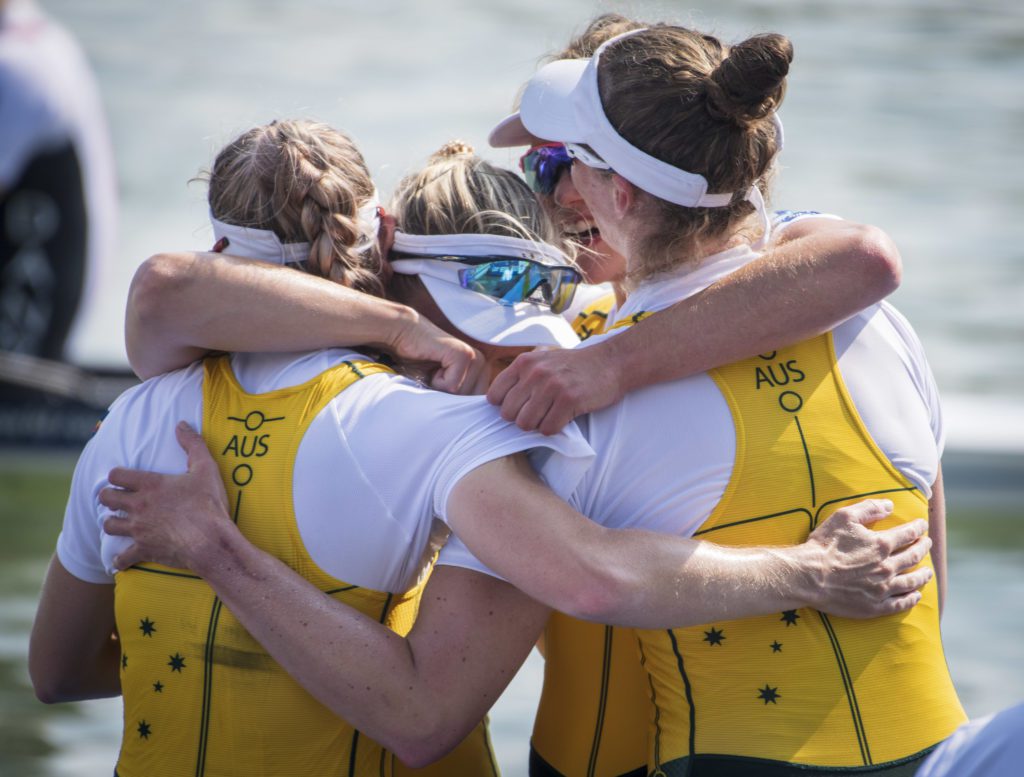
Photo AUS W4- win with glee // World Championships, Linz Ottensheim, Austria. Saturday 31 August 2019
Credit Benedict Tufnell
Where the Dutch did shine again was in the men’s quads, where 2018 champions Italy’s hopes of winning were dashed by the Netherlands whose second 500m caught everyone by the throat. Poland once again had power but the calm Dutch quartet has developed a gorgeously smooth efficiency which picked off their rivals as they put the pedal to the metal. By the time the second half of the race was beginning the bottom three of Australia, Germany and China had been dropped by clear water, and it was left to Poland to surprise Italy by rowing through them as the Dutch were finishing well ahead. The majestic NED M4x is a demonstration of perfect sculling technique which their rivals will have to work to match in the next ten months, and was celebrated by a batch of fans swimming out from the side and evading the safety boats to hug congratulations.
Also aiming for perfection were the Sinkovic brothers from Croatia, winning their second men’s pairs gold after a frenetic start from all six crews. Like the Dutch quad, the Sinkovics have developed a highly cohesive style which moves their boat with great efficiency, and it was reminiscent of the Murray and Bond days seeing them getting up and then leaning on the entire field and simply moving away until New Zealand stopped the rot with their final sprint. The Croatian shell does bounce a little, and the fact that they were moving gingerly when they docked to get the medal suggests that the injury issues of the early summer may still be haunting them, but for today it was more than good and certainly worked to push New Zealand and Australia into silver and bronze.
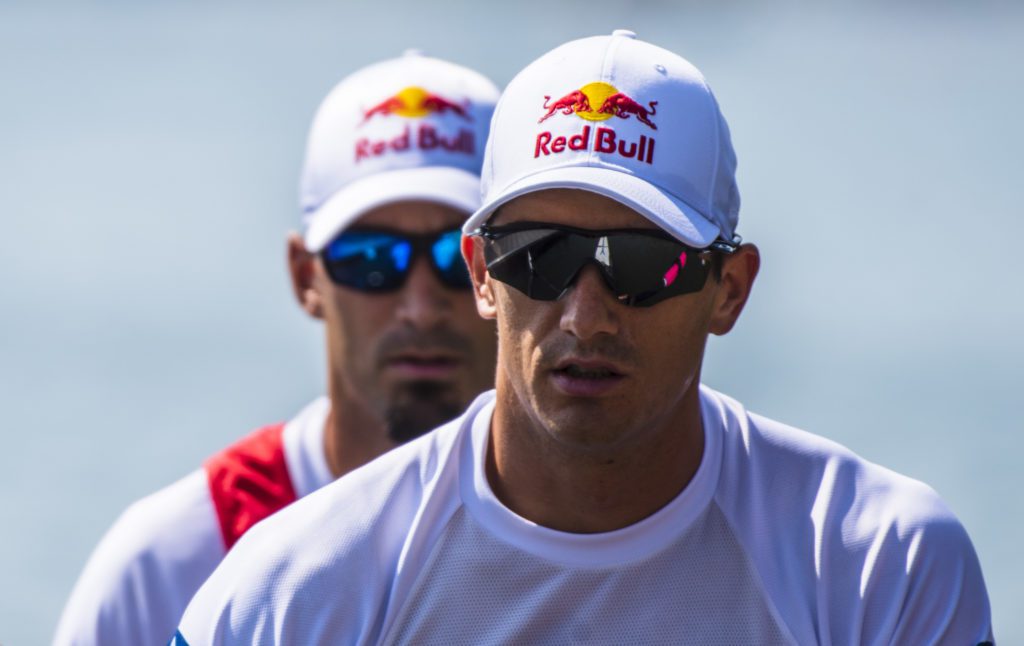
Photo Sinkovic brothers // World Championships, Linz Ottensheim, Austria. Saturday 31 August 2019
Credit Benedict Tufnell
Australia’s Jessica Morrison and Annabelle McIntyre had one hell of a go at taking the crowns of New Zealanders Grace Prendergast and Kerri Gowler, who are back at the top of the event and sparing no rivals, even if they are also doubling up into the Kiwi eight. Their speed stretched out the field so that there were 19 seconds between first and sixth, and Australia seemed to have no trouble at all holding defending champions Canada away from the silver medal.
Irishman Paul O’Donovan retained his 2018 lightweight doubles title, but with a new partner, Fintan McCarthy, who has pushed out Paul’s brother Gary in selection trials. The Irishmen played a blinder, very nearly even-splitting after being slowest off the blocks, steaming solidly through the field before taking and then defending a slender lead. Germany’s very fast double played tag with the Italians for the first half before Italy blew past to beat the Germans by a few feet for silver. Now nobody in Ireland will call Fintan ‘Gary’ again, as they have been doing — accidentally — for the last half-year. The lightweight women’s doubles was another sewn-on New Zealand affair, but as they swanned off into the sunset with gold, the battle behind them developed, at one stage featuring four of the remaining five crews. Initially slow, the Dutch duo eventually bagged silver, and in a breathless scramble to the line Britain manaaged to beat Romania by a mere 0.35 seconds.
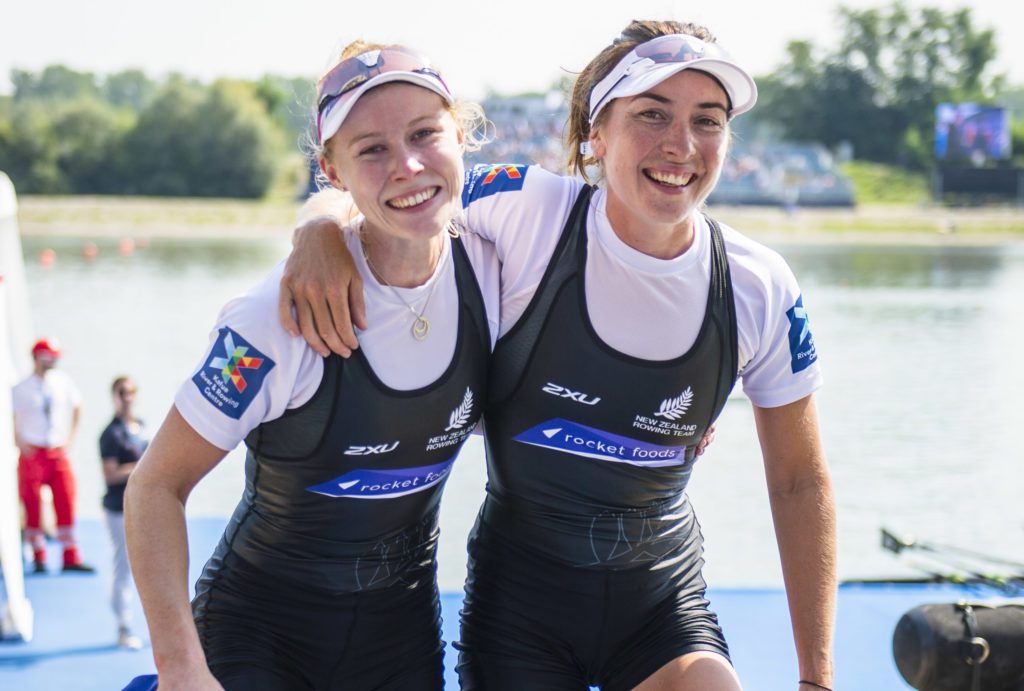
Photo NZL LW2x // World Championships, Linz Ottensheim, Austria. Saturday 31 August 2019
Credit Benedict Tufnell
The B-finals had masses to offer, from Belgium’s LM2x winning — finally, after all the drama of 2016 — the last Olympic slot with their B-final win, to the monstrously tight fields in the men’s and women’s pairs where only the last crews (Britain and Chile respectively) did not qualify for Tokyo. Olaf Tufte anchored the Norwegian quad’s qualification ahead of Britain in a two-through race which started very late due to a Fairness Commission crosswind decision which led to the lanes being redrawn, and the USA camp boat did the same ahead of Italy in the women’s quads. There was an extremely unusual photofinish in the para-fours B-final, won eventually by Ukraine who delightedly beat Brazil to the final qualifying spot, and Italy trounced a pile of good crews to be the last LW2x bagging a place to Tokyo.
Just Sunday to go. One more day of agony (for one women’s and one men’s eight) and ecstasy (for the newly crowned medallists). One more day of finger-chewing tension and breathtaking racing. One more day for the best rowing in the world to make a splash.
